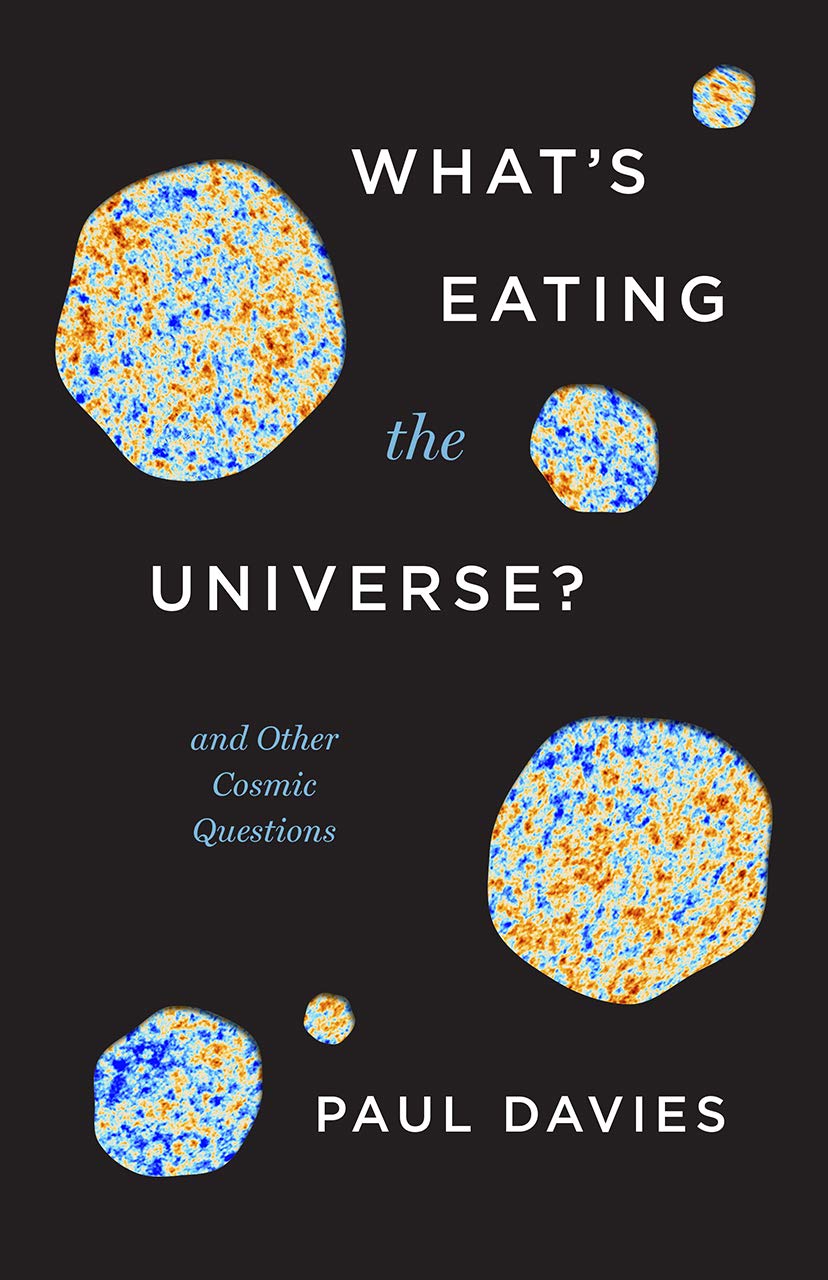

Full description not available
C**H
Fun; Satisfying; Inquisitive
Paul Davies reminds me in some ways of how Richard Feynman was — its a bit captivating the way he views the universe & the unbiased clarity he speaks with. Neil Degrasse Tyson is a bit more rhetoric. These two are just in awe of everything. It is helpful for people like me. Although I can’t agree with either of them on some things, I am greatly appreciative of their fascination.The book here is 30 cosmological questions, covering a quick sweep of the landscape in brief pages. I did feel like I was left hanging after some of them ended; entirely due to my lack of context. For one example, I don’t know the general consensus or history of modern cosmology concerning the Big Bang & lots of knowledge was presumed.
J**M
Very Educational Read.
I read this book out of curiosity. I am neither a scientist or mathematician. I learned more about the universe and the theories on how it came about. Very interesting on how the author makes a great case for the beginning. Being a Christian I am skeptical because I believe God created the universe and he is the one that gave it the molecular structure needed for it to evolve for billions of years. That being said I enjoyed the book.
M**L
Idea proving!
The book was used for information purposes.- recommended for those interested in challengingideas!
T**V
Book by the best enterpreter of science ever!
Simple enough for most readers, and contains no math. Davies does it again....
D**E
A very interesting and fun read. Highly recommended.
See above.
E**A
Excellent
I am grateful to have received an advance copy of this book free of charge through NetGalley in return for an honest review.The author did a fantastic job of transforming intensely difficult concepts in theoretical physics into an easily understood popular science book. And yet, while this book is a great overview for a non-physicist of the discoveries in theoretical physics to date and the current debates that have not yet been resolved, it is also a smooth-flowing overview of the current state of discovery/theory for someone like myself who has a graduate degree in applied physics but has been out of the field for a couple of decades.I would enthusiastically recommend this to anyone with an interest in physics!
A**E
Easy to read
This book is an accessible, easy-to-read history of cosmology that sums up the current state of the science and speculates about what might be to come. It also deals with some of the weirder possible phenomenon that might exist in or might affect our universe.. The author is comfortable with mystery, with the unknown, with the process of searching. He acknowledges that some of the current popular theories might be wrong, even if they've got beautiful math working in their favor.Thanks, NetGalley, for the ARC I received. This is my honest and voluntary review.
G**S
A new take on questions as old as time
A truly original book, this short volume examines philosophical and even religious concepts using pure science. The author answers a series of questions, from basic physics to extraterrestrial life and even why we’re here. He explains some of the leading theories about black holes and the end of the universe. I’ve read a few books about similar subjects and some of the theses here were familiar, but examined in a totally new light. Paul Davies explains it all in easy-to-follow language. Many of the concepts sailed high above my head, but the examples he uses are relatable. I also enjoyed the illustrations, some of which made me understand parts that I hadn’t grasped just by reading.I chose to read this book and all opinions in this review are my own and completely unbiased. Thank you, NetGalley/University of Chicago Press!
J**K
An enlightening state-of-the-art introduction to cosmology.
This is an accessible, mind-expanding book which gives an enlightening overview of the universe in 30 short but engrossing chapters titled:1. Journey from the edge of time2. The search for the key to the universe3. Why is it dark at night?4. The big bang5. Where is the centre of the universe?6. Why the cosmos is actually fairly simple7. What is the speed of space?8. What is the shape of space?9. Explaining the cosmic big fix10. Most of our universe is missing11. What is dark energy?12. Where does matter come from?13. Gravity conquers all14. Warped time and black holes15. Is time travel possible?16. What is the source of time's puzzling arrow?17. The black hole paradox18. A theory of everything?19. Fossils from the cosmic dawn20. Can the universe come from nothing?21. How many universes are there?22. The Goldilocks enigma23. What's eating the universe?24. Is the universe actually a botched job?25. Are we alone?26. Is ET in our backyard?27. Why am I living NOW?28. The fate of our universe29. Is there a meaning to it all?30. What's new on the cosmic horizon?Physicist Paul Davies is a superb science writer and his fascinating 'What's Eating The Universe?' is a state-of-the-art guide to cosmology which deserves to be widely read.
P**B
Fascinating astro science
A great book, full of fascinating stuff about the universe, big bang, quantum theory, etc. Well explained but, as you would expect, boggles the mind sometimes. Highly recommended for those who, like me, enjoy and are interested in this kind of science.
M**N
Didn't answer its own question!
I enjoyed this little book and found it easy to read and to understand. I learnta lt but not what's eating the universe!
TrustPilot
1 个月前
1天前